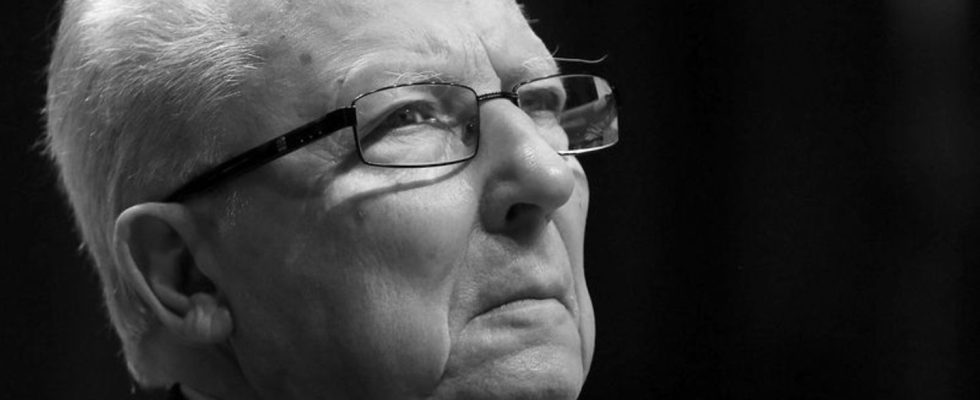politics
Thought leader and Europe’s honorary citizen: Jacques Delors is dead
Former EU Commission President Jacques Delors is dead. Photo
© Olivier Hoslet/EPA/dpa
The Frenchman Delors was a great pioneer in Europe. With Helmut Kohl and François Mitterrand, he pushed forward the unification of the continent. The visionary has now died at an old age.
In the corona pandemic, he warned of a lack of solidarity, which represents a “mortal danger to the EU”. Now the former President of the EU Commission has died at the age of 98.
Delors, who was born on July 20, 1925 in Paris, will go down in history as a great Frenchman and great European as one of the builders of “our Europe,” wrote EU Council President Charles Michel on Wednesday on the Frenchman’s death on the online platform X. The French news agency AFP had previously reported, citing Delors’ daughter Martine Aubry, that her father had died.
Picture book career in France
In his home country, Delors, who comes from the east of the French capital, had a picture-perfect career, from employee of the French National Bank to minister. When he was appointed to the finance department by then Socialist President François Mitterrand in 1981, it came as a largely unexpected surprise. “I knew nothing,” he later wrote in his memoirs.
In “Europe’s capital,” Delors then worked as the architect of the European internal market. Together with others, he laid the foundations of the European monetary union.
“Europe needs not only firefighters, but also architects,” Delors once said. The socialist was lucky at the head of the EU authority. Because he received support from Mitterrand and German Chancellor Helmut Kohl.
“After the fall of the Berlin Wall, the trio quickly understood that German reunification had to be accompanied by a new stage in the integration of the continent: the creation of the monetary union,” the respected daily newspaper “Le Monde” once summarized.
During Delors’s term in Brussels from 1985 to 1995, the Maastricht Treaty turned the European Communities into the European Union. The “Delors Report” pointed the way to economic and monetary union.
Controversies with Margaret Thatcher
While the Eastern Bloc collapsed and the question of German reunification gave rise to old resentments, Delors worked to deepen cooperation. At the time, there was heated controversy with Britain’s “Iron Lady”, Margaret Thatcher (1925 to 2013).
In Brussels, the sober-looking Delors also tried to gain “intellectual control” over the meetings of European heads of state and government.
Did he manage it? By his own admission, yes, because his recipe was short notes for the bosses, “three to five pages, with a number of limited but important points to decide on.” In 2015, two decades after his departure, an EU summit named him an “Honorary Citizen of Europe”.
Delors clearly warned against design errors in the common currency: the second pillar, namely the common economic policy, was missing. The former top politician often demonstrated foresight: In an interview in 2012 – long before the British vote for Brexit – he suggested that Great Britain should leave the EU.
After leaving the EU, Delors decided against running for the French presidency – even though he would have had a good chance. The bitter disappointment among some French people had a lasting impact on Delors’ image at home. He himself stated in a documentary that he might have been able to advance some things that were close to his heart. But you have to stand by a decision you have made.

